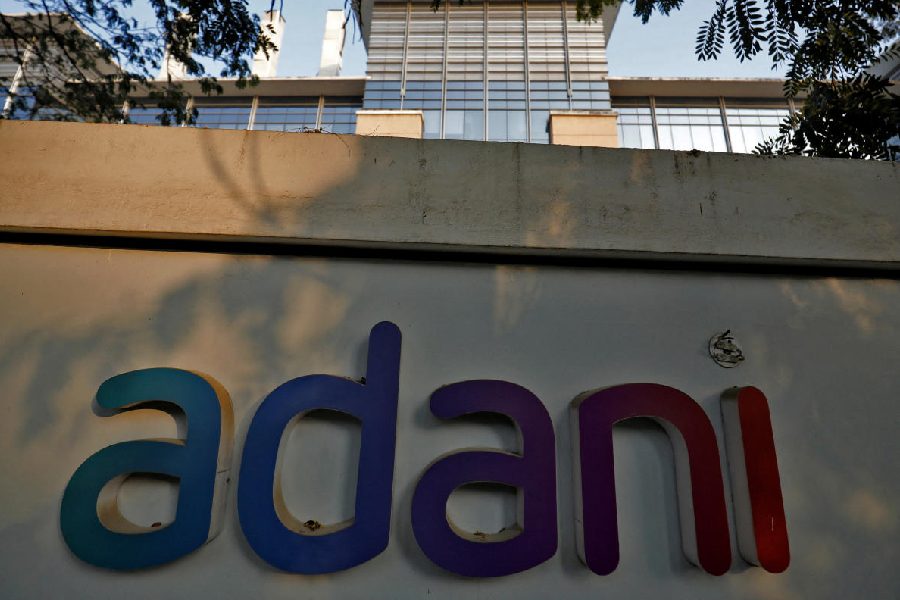A regulatory quagmire threatens to undermine the investigation into US short seller Hindenburg Research’s accusations of shenanigans in the Gautam Adani group that shook the stock markets at the start of the year.
The investigation into l’affaire Adani stems from an alleged breach of public float rules, a skein of related party transactions and suspicions that a shadowy bunch of overseas entities were ratcheting up the stock prices of the group’s listed entities.
A six-member expert committee headed by retired Supreme Court Justice A.M. Sapre has concluded that frequent changes in securities laws since 2018 make it difficult to conclude that the Adani group had violated regulations by bringing the minimum public shareholding below the mandated threshold of 25 per cent or that it had deliberately concealed the identity of the real owners of the funds that were funnelled into the conglomerate through 13 “opaque” entities residing in various tax havens.
At the same time, the committee — which submitted its report to the apex court on May 8 — said there was also no evidence to show that entities close to the Ahmedabad-based conglomerate had manipulated the prices of the group’s listed entities, thereby vaulting Gautam Adani to almost the top of the totem pole that ranked global tycoons last year.
The remit of the expert committee was narrow: it was asked to assess the causal factors that led to the stock market volatility after the Hindenburg report came out on January 24 and whether there had been regulatory failure on the part of Sebi in dealing with the contravention of securities market laws in the Adani case.
It was also asked to suggest ways to tighten the regulatory work in such a manner that nvestor interests could be adequately protected.
The apex court had asked Sebi to conduct its own investigation into the blizzard of transactions in Adani group shares between March 1, 2020 and December 31, 2022 to determine whether there had been a breach of public float rules, sieve through related party transactions and look for evidence of stock manipulation.
The expert committee said: “The foundation of the Sebi’s suspicion that led to the investigations into the overseas entities ownership is that they have ‘opaque’ structures because the ultimate chain ownership above the 13 overseas entities is not clear. Sebi has found 42 contributories to the assets under management of the 13 overseas entities.”
The committee said Sebi had used various avenues – through the Enforcement Directorate, the Central Board of Direct Taxes and various securities market regulators where the 42 contributories were located – and drawn a blank.
One reason for this “failure” was the manner in which the legislative policy of Sebi was altered under the FPI regulations. Until 2018, the foreign portfolio investor (FPI) regulations requiring disclosure of beneficial owner were in consonance with the requirements under the Prevention of Money Laundering Act (PMLA).
In 2018, the very provision dealing with “opaque structure” and requiring an FPI to be able to disclose every ultimate natural person at the end of the chain of every owner of economic interest in the FPI “was done away with”.
However, in 2020, the investigation and the enforcement authorities “moved in the opposite direction” – stating that the ultimate owner of every piece of economic interest in an FPI must he capable of being ascertained.
“It is this dichotomy that has led to Sebi drawing a blank worldwide, despite its best efforts,” the expert committee said. “Without such information, Sebi is unable to satisfy itself that its suspicion can be put to rest.”
The committee believes that this perpetuates the classical chicken-and-egg situation: “The securities market regulator suspects wrongdoing, but also finds compliance with various stipulations in attendant regulations.”
In the case of the charge of related party transactions, the problem arises because of amendments in Sebi legislations made in November 2021 under which the terms “related party” and “related party transactions” were amended substantially.
Some of these changes took place on April 1, 2022 and others on April 1, 2023. India now has one of the widest definitions of these terms across jurisdictions.
“Transactions by related parties with subsidiaries of listed companies and transactions with unrelated third parties that are intended and purposed to benefit a related party have been explicitly brought into the fold,” the committee said.
But the amendments made in November 2021 were given “deferred effect” to enable companies to re-arrange their affairs to become compliant with law, essentially providing a “glide path” to achieve conformity which, the committee said, was a “good practice in economic legislation”.
The committee said Sebi had two choices before it: it could have opted to test the “structures” on the strength of the unamended regulations. For instance, section 12A of the Sebi Act, 1992, outlaws contrivances and devices that are structured to circumvent law – in effect, a framework against anti-avoidance. Or, it could have opted to make amendments to clearly sell out what would be covered by the legal requirements.
Sebi decided to adopt the path of making “explicit stipulations prospectively”. As a result, the feasibility of testing the principles underlying the regulations governing related party transactions had been eroded.
The committee said that it would “not be possible to return a finding of a regulatory failure in the context of the regulations prevailing when the transactions were effected”.
The committee said there was a need to develop a proper enforcement policy that would optimise the utilisation of regulator’s field resources. It said that Sebi needs to set the criteria based on which it must decide whether to initiate proceedings to impose monetary penalties, remedial action or launch criminal prosecution against offenders. These should be “clear, reasoned and non-arbitrary”.











